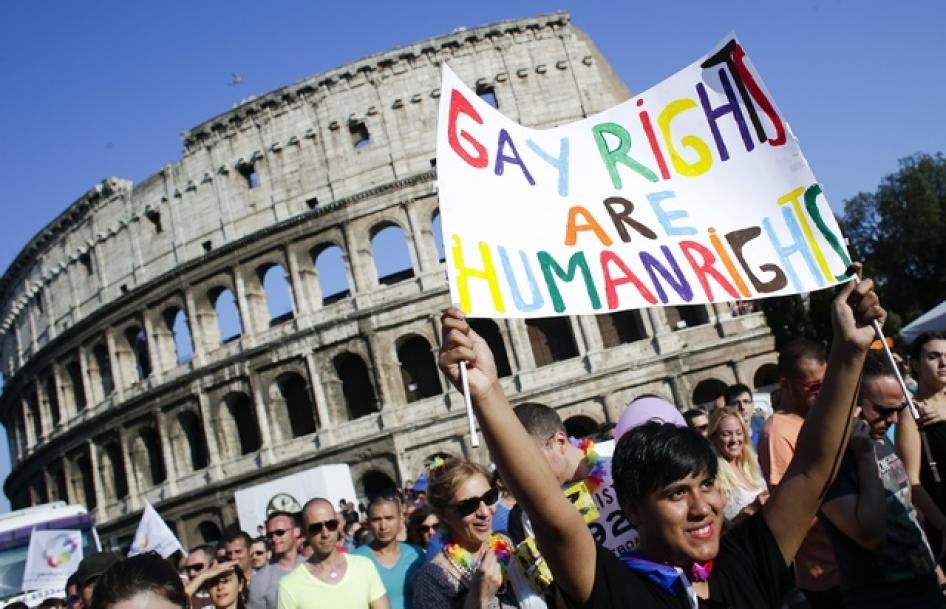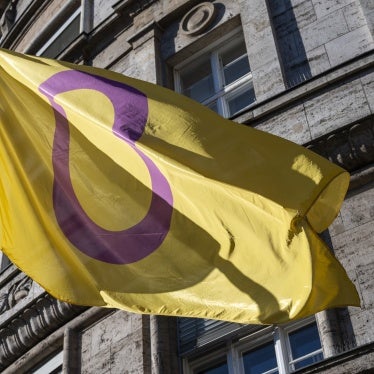(Berlin) – A European Court of Human Rights ruling on July 21, 2015, should motivate Italian lawmakers to introduce laws promptly to protect same-sex relationships, Human Rights Watch said today. The court ruled that Italy’s failure to legally recognize same-sex relationships violates human rights.
“The court’s ruling should signal Italian lawmakers that they need to stop stalling on protecting the rights of same sex-couples,” said Boris Dittrich, lesbian, gay, bisexual, and transgender (LGBT) rights advocacy director at Human Rights Watch. “Hopefully this could be the push they need to live up to their responsibilities.”
Since 2010 several Italian courts have ruled that same-sex couples are entitled to partnership recognition. Prime Minister Matteo Renzi’s Democratic Party submitted a civil union bill to Parliament in 2014, but it has been stalled in the Italian senate. Senators who oppose the bill have proposed thousands of amendments.
The European Court ruled in the case Oliari and others v. Italy, brought by three same-sex couples who had no opportunity to have their relationships recognized under Italian law. The court noted that in the absence of marriage rights, same-sex couples have a particular interest in obtaining the option of entering into a form of civil union or registered partnership. Such protections would be the most appropriate way to legally recognize their relationship and would grant them the core rights for a couple in a stable and committed relationship without unnecessary hindrance.
The court said that since its ruling in a 2010 case, Schalk and Kopf v. Austria (no. 30141/04, ECHR 2010), the movement toward legal recognition of same-sex couples has continued to develop rapidly in Europe, while also making explicit reference to the June 26 ruling by the United States Supreme Court in the case of Obergefell et al. v. Ohio that same-sex couples may exercise the fundamental right to marry in all states.
“The court leaves open the possibility that once a clear majority of Council of Europe countries recognize the right to marry without distinction as to sexual orientation, the European Convention, which is a living document with evolving standards, will require all member countries to grant same-sex couples access to marriage as a matter of human rights,” Dittrich said. “Right now that is not the case.”
Dittrich initiated the debate on marriage equality as a member of the Dutch Parliament in 1994. After heated debates in parliament and in society at large, Parliament approved same-sex marriage legislation in 2001, making the Netherlands the first country in the world to legally recognize same-sex marriage and ensure marriage equality.
A thin majority of 24 out of the 47 Council of Europe member countries have approved legislation supporting recognition for same-sex partnerships and for relevant protections. Recognition of same-sex marriage has grown from 6 countries in 2010 to the current 11. “The Court’s ruling demonstrates the advancement of the movement in Europe toward legal recognition of same-sex couples since the ruling in 2010,” Dittrich said. “It is high time for the Italian legislature to deliver to protect the rights of millions of Italians who live in same-sex relationships.”









